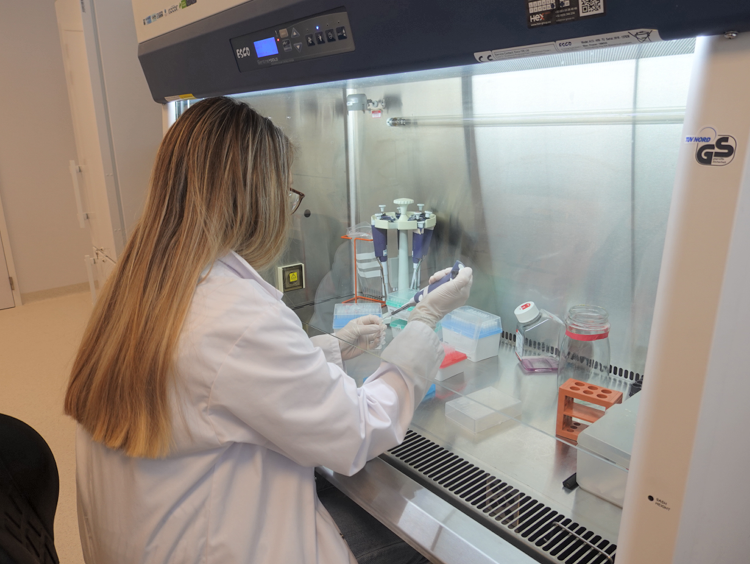Health problems
Systemic Mastocytosis

Systemic mastocytosis is a rare disease. Mastocytosis is a group of diseases that cause an excessive build up of mast cells in the body. A mast cell is a type of white blood cell that helps our immune system to function correctly.
When you suffer from systemic mastocytosis an excess of mast cells builds up in the skin, bone marrow, digestive tract or other body organs. When activated these mast cells release substances that can trigger signs and symptoms similar to those of an allergic reaction. Serious inflammation can sometimes cause organic lesions. Common triggers include alcohol, spicy food, insect bites and some medicines.
Mast cell activation syndrome and systemic mastocytosis present the same signs and symptoms. In the case of mast cell activation syndrome there is no build up of mast cells in the bone marrow. Systemic mastocytosis is also characterised by the presence of a mutation of the c-KIT gene. This mutation is not generally hereditary.
The signs and symptoms of systemic mastocytosis depend on the part of the body affected by an excess of mast cells. An excess of mast cells can build up in the skin, liver, spleen, bone marrow or intestines. More rarely, other organs such as the brain, heart or lungs can also be affected
- The signs and symptoms of systemic mastocytosis can include
- Flushing, itching.
- Abdominal pain, diarrhoea, nausea or vomiting.
- Palpitations, feeling faint.
- Allergic reactions ranging from urticaria to Quincke’s oedema and anaphylaxis
- Coughing, shortness of breath, rhinorrhea, lachrymation.
- Frequent urination, urinary burning.
- Bone and muscle pain.
- Depression, mood changes or problems concentrating.
- Anaemia or bleeding disorders.
- Enlarged liver, spleen or lymph nodes.
- The various triggers for mastocytosis symptoms include:
- Insect bites.
- Food rich in histamine or histamine liberators.
- Physical factors (change in temperature, fever)
- Surgery, traumas.
- Certain medicines.
To diagnose systemic mastocytosis a biopsy of the organ or organs affected is necessary to establish the link between the symptoms and the illness. The biopsy is to detect the presence of an accumulation of mast cells as well as the c-KIT mutation. The tryptase level is a blood marker that is very often useful for the diagnosis.
Once the diagnosis has been established a number of additional examinations must be carried out (abdominal ultrasound, bone density test, osteo-medular biopsy) to determine the severity.
There are two aspects to mastocytosis treatment. The symptomatic treatment aims to control the symptoms whereas the antiproliferative treatment aims to control the excessive production and accumulation of mast cells in the organs. Antiproliferative treatment is not always required and will depend on the specialist’s assessment.
Symptomatic treatment is based on identifying and eliminating factors that trigger the symptoms as well as the use of antihistamines, antacids and other anti-allergy medication. An adrenaline pen is proposed to patients who have had a severe anaphylactic reaction.
The antiproliferative treatment is based on chemotherapy and certain targeted therapies. In rare cases an allogeneic stem cell transplant can be envisaged
If you are being monitored for a stystemic mastocytosis and you have respiratory distress or feel faint (Quincke’s oedema or anaphylaxis) you should go immediately to the emergency department or dial 112. If you have an auto-injector EPIPEN (adrenaline) you should use it to make an intramuscular injection while awaiting the arrival of the ambulance.
Patients with symptoms that are suspected to indicate a mastocytosis will be directed to a consultation with a specialist. You may be directed initially to haematology or internal medicine and then redirected to another specialist depending on the results.
- Dr. Adriano Salaroli (Haematology)
- Dr. Maxime Ilzkovitz (Internal Medecine)
- Haematology (Jules Bordet Institute)
- Internal medicine (Jules Border Institute)